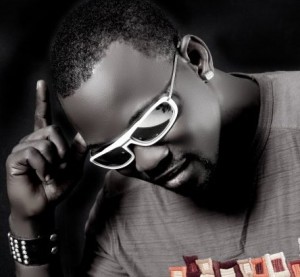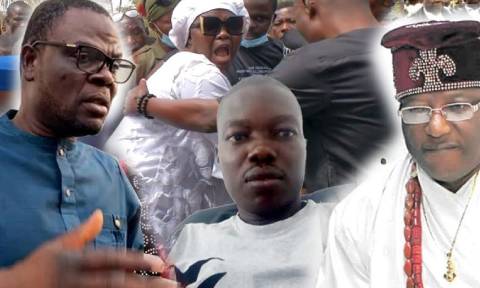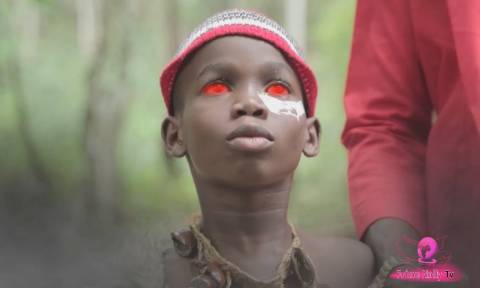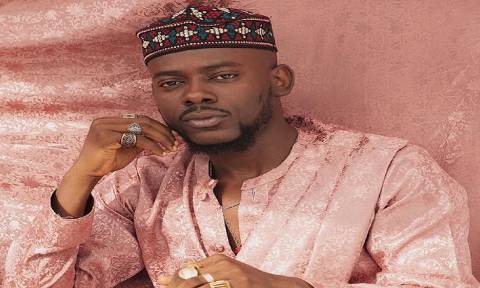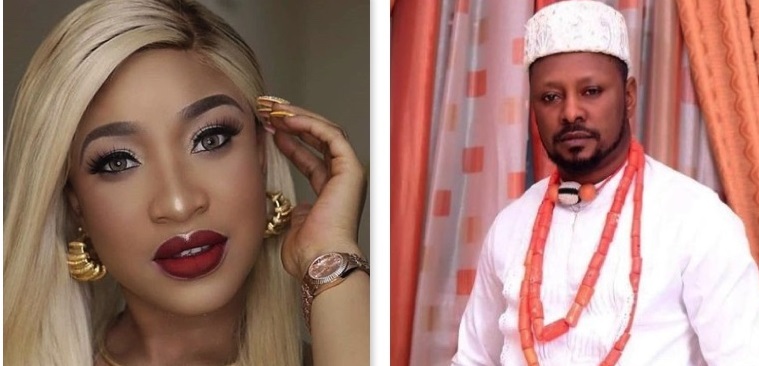
Death, they say, is an acquired trait, and there is no mortal who will not taste of its bitter pill.
When it will come, no mortal knows; but like an unrelenting stalker, it shadows its victims and takes them away the way a hen plucks its feathers.
And so, Chief Chukwuemeka Odumegwu-Ojukwu, the Ikemba Nnewi and the undisputable leader of Igbo nation is dead. His death is, nonetheless, a sting in the tail for the former Biafran warlord, who fought with death on several occasions to remain alive, but eventually capitulated to its superior power as he bade the world farewell on Saturday, 26th November, 2011in a London hospital at the age of 78.
Ojukwu, a historian, soldier and politician, was hated and loved by many, depending on which side of the divide one is looking at his life and times. For larger segment of Nigerians and beyond, he represented the soul of Nd’Igbo, even as some still have reservation on his leadership for leading the Igbo to the ill-fated Nigerian/ Biafran civil war in 1967.
His death marks a watershed, the end of yet another monumental epoch, in Nigeria’s turbulent history. As an Igbo nationalist, soldier, politician and thinker, Ojukwu is unarguably the greatest son of Igboland yet after Dr Nnamdi Azikiwe, Nigeria’s first Head of State, a nationalist and pan-African thinker.
Son of Sir Louis Phillippe Odumegwu-Ojukwu, a businessman from Nnewi in South-Eastern Nigeria, who died in 1966, Ojukwu was born on November 4, 1933 at Zungeru, Kaduna State, and attended the Lincoln College, Oxford University, United Kingdom, where he took a Masters degree in history.
He joined the civil service in Eastern Nigeria as an administrative officer at Udi in present-day Enugu State, but within months of working with the colonial civil service, he enlisted in the Nigerian Army together with some other young and brilliant university graduates, including O. Olutoye (1956); Emmanuel Ifeajuna and C. O. Rotimi (1960), and Adewale Ademoyega (1962). In accordance with the tempo of the times and given his academic qualifications as a first graduate in the Nigerian Army, Ojukwu had a rapid promotion in the Nigerian Army, eventually becoming its Quartermaster General.
He served under Major-General Johnson Thomas Umunakwe Aguiyi-Ironsi in the United Nations’ peacekeeping force in the Congo and was promoted Lieutenant-Colonel in 1964 and posted to Kano, where he commanded the 5th Battalion of the Nigerian Army. However, on January 15, 1966, radical soldier, Major Chukwuma Kaduna Nzeogwu, executed the first military coup in the country.
However, it was largely owing to the efforts of Lt. Col. Odumegwu-Ojukwu, who supported the forces loyal to the General Officer Commanding (GOC) of the Nigerian Armed Forces, Aguiyi-Ironisi, that the coup suffered a reversal in the North, where it had recorded initial success, with Nzeogwu in firm control of Kaduna. The coup had flopped in other parts of the country, and trickled into the Supreme Headquarters in Lagos with assurance that he would be part of the new military government, Nzeogwu was arrested and jailed along with other mutineers.
General Aguiyi-Ironsi took over the leadership of the country and thus became the first military Head of State. On Monday, January 17, 1966, Lt. Col. Odumegwu-Ojukwu was appointed military governor of Eastern Region, together with Lt.-Cols Hassan Usman Katsina (North), Francis Adekunle Fajuyi (West), and David Akpode Ejoor (Mid West), who formed the Supreme Military Council with Brigadier B.A.O Ogundipe, Chief of Staff, Supreme Headquarters; Lt. Col. Yakubu Gowon, Chief of Staff Army Headquarters, Commodore J. E. A. Wey; Head of Nigerian Navy, and Lt. Col. George T. Kurubo, Head of Air Force.
Although the counter coup by a group of northern officers, including Majors Murtala Muhammed, Theophilus Danjuma on July 29, 1966, in which General Aguiyi-Ironsi and his host Colonel Fajuyi were abducted and killed in Ibadan, and in which officers of South-Eastern and Mid-western origin were targeted and systematically eliminated across the country, led to a pogrom which consumed the Igbo across the country, Ojukwu maintained that the crisis could be resolved peacefully.
However, his insistence that Brigadier Babafemi Ogundipe should take over leadership of the country, in line with military hierarchy, did not appeal to his colleagues, and Colonel Gowon assumed leadership of the country. As he was to tell an interviewer, Chidi Nwangu, in 1999, “My problem in Nigeria is that my line has been a strategy of love and friendship. When Ironsi died, which is when I came out into the open politically, Emeka Odumegwu-Ojukwu did not want to take over.I said that Ogundipe was the number-two, the rightful number two. Having signed for the army, you must accept death whenever and however it comes.”
Following the near breakdown of law and order engineered by his refusal to recognise Gowon as Commander-in-Chief, efforts were made to broker peace, particularly the meeting in Aburi, Ghana in January 1967 hosted by General Joseph Ankrah, where the contending parties signed what became known as the “Aburi Accord.”
Following Gowon’s splitting of the Eastern Region into three states on May 27, 1967, Ojukwu, on May 30, 1967, arising from a resolution by the Eastern Nigerian Constituent Assembly, declared Eastern Nigeria a sovereign state henceforth to be known as Biafra. The civil war, which followed (1967-1970), remains the saddest part of Nigeria’s history, perhaps followed by the criminal annulment of the 1993 presidential elections won by Chief MKO Abiola and the subsequent despotic, totalitarian regime of General Sani Abacha (1993-1998).
Speaking on the Nigerian Civil War, Ojukwu said: “I regret the disabilities of the war. The overall pattern and rationale was honest. It was a choice, it was either to become a slave of the Hausas at that time, or to do what we did. And up till tomorrow, whenever I’m given the opportunity to choose choice between slavery and … (of course), I’ll reject slavery.’’ However, Ojukwu’s contention is hotly disputed by many eminent Nigerians, including Professor Wole Soyinka, who felt that he could not have been blameless in the torrents of events that plagued the country prior to, during, and after the civil war.
After 13 years in exile, the Federal Government led by President Shehu Aliyu Usman Shagari granted Ojukwu an official pardon and he was given a hero’s welcome by his Nnewi people, who gave him the title of “Ikemba,” while the entire Igbo nation named him “Dikedioramma” (Beloved hero).
Whatever his sins against the Nigerian nation, Ojukwu’s efforts at maintaining the country’s unity since his return from exile cannot be denied.
And among his notable contributions to the political lexicon of the country was the description of Chief Obafemi Awolowo as “the greatest president Nigeria never had”’
Ojukwu was the presidential candidate of the All Progressives Grand Alliance (APGA), a party which is still closely associated with the South-East geopolitical zone of the country, in the 2007 presidential election. On January 14, 2008 the Federal Government paid him his military pension, but he complained about the reference to him as a Lieutenant Colonel. “I am a four-star general of the Biafran Army,” he said, drawing attention to parallels from the American civil war.
On Africa’s economic relations with Western powers, particularly the USA, Ojukwu said: ‘’I think we need to get into a proper economic dialogue with the ones in America responsible for trade and economic relations. One thing worries me. We know that at least the cost of living and operating businesses is low in Africa, lower than in South-East Asia, I am worried that America, rather than work with Africa, and help Africa develop its infrastructure and work with the U.S., America goes to the South-East Asia.
“We are allowed to focus on primary, agricultural products, while other countries are supported to add value to other aspects of economic production. Africa also needs a secure atmosphere for production. If we do this, it will improve our linking our states/countries with American companies, and government. We should do these without being exploited.‘’
Perhaps an inroad into what many considered his iron personality is provided through his own self evaluation:” I don’t make any apologies for that (being seen and operating as stubborn). Many great leaders are also seen as stubborn. For example, Napoleon was very stubborn.
Charles De Gaulle of France was very stubborn, General MacArthur, an American, too, was stubborn and arrogant.”
Chief Ojukwu spent his last days in Enugu, the Enugu State capital. Firstly, he lived in a bungalow at Isi-Uzo street, Independence Layout, Enugu, with his ex-beauty queen, Lady Bianca, and his children before packing into his Casabiaca palatial mansion at Government Reservation Area also in Enugu metropolis.
He was highly respected that meeting him at his residence was done through a stiff protocol as if he was a Military Head of State up to his last moment in London.
Little wonder, his wife, Lady Bianca, while speaking in Enugu at Ikemba’s 78th birthday on November 11, this year, told a large crowd that her husband was addressed in far away London by his physicians as “General”.“When I go back to London, I’ll tell my husband, “General, your people love you. General, your people remember you. General, your people are praying for you. General, your people are waiting for your return,” she told the crowd.
Ultimately, the former Biafran colossus would be remembered for his bravery, commitment, sincerity of purpose and most importantly his undiluted love for the Igbo nation.
Meanwhile Ikemba Nnewi, Chief Chukwuemeka Odimegwu-Ojukwu, is dead. He died at the age of 78 during a protracted illness in a London hospital.
According to a press release issued by the family of the former warlord, signed by the late Igbo leader’s son, Emeka Ojukwu (Jnr), Odumegwu-Ojukwu, had a fierce battle with stroke.
“After a protracted and brave fight against stroke, the People’s General, Ikemba Nnewi, Dikedioranma Ndigbo, Ezeigbo Gburugburu, Dim Chukwuemeka Odumegwu-Ojukwu, died in the early hours of today in London.
“We thank all those who showed concern in our period of difficulties, starting from the president of country, Dr. Goodluck Jonathan.
“We thank, in a special way, the governor of Anambra State, Mr. Peter Obi, who went above and beyond the call to duty to look after him.
Besides paying the hospital bills, he visited London on a monthly basis to see him,” the statement read in part.
The son of the Biafran warlord, Ojukwu junior, sent a text to Governor Peter Obi, who was returning from France to Nigeria, where he accompanied President Goodluck Jonathan on an official visit to the country that his father had passed on. He shouted “Oh no, oh no!” ad infinitum, and the governor quickly contacted Bianca Ojukwu, who was in London. She confirmed the death of her husband. The governor also called his wife, who was in France and she quickly joined Bianca in London.
His place in Nigeria’s history assured –Jonathan
The Presidency announced on Saturday that the news of the death of Chief Odumegwu-Ojukwu in the United Kingdom was received by President Goodluck Jonathan with much sadness and a deep feeling of great national loss.
A statement signed by the Special Adviser to the President on Media and Publicity, Dr. Reuben Abati, noted that Jonathan joined Chief Ojukwu’s family, the government and people of his home state, Anambra, the entire Igbo people of Nigeria and his friends, associates and followers across the country in mourning him.
Jonathan urged them to be comforted by the knowledge that Chief Ojukwu lived a most fulfilled life and has, in passing on, left behind a record of very notable contributions to the evolution of modern Nigeria which will assure his place in the history of the country.
President Jonathan expressed the belief that the late Chief Ojukwu’s “immense love for his people, justice, equity and fairness which forced him into the leading role he played in the Nigerian civil war, as well as his commitment to reconciliation and the full reintegration of his people into a united and progressive Nigeria in the aftermath of the war, will ensure that he is remembered forever as one of the great personalities of his time who stood out easily as a brave, courageous, fearless, erudite and charismatic leader.”
He called on Chief Ojukwu’s family, his associates and followers to make his rites of passage a celebration of his most worthy and memorable life spent in the service of his people and the nation.
The president prayed that God Almighty would grant Chief Ojukwu’s soul eternal rest from his earthly labours.
He was a ‘heroes’ hero’ —Mark
President of the Senate, David Mark, also lamented the demise of Ojukwu, saying he fought to liberate the oppressed till the end.
He described the late Ojukwu as a heroes’ hero, adding that he was a dogged fighter, whose contributions to the nation’s development cannot be underestimated.
He described the former Biafran leader as a hero.
Mark, in a statement by his Special Adviser on Media, Mr. Kola Ologbondiyan, said “Ojukwu remains one of the greatest Nigerians that ever lived.
“No matter how much you love or hate him, Ojukwu was a man who loved his people and was ever prepared to lay down his life for them to have a better living.
“No matter the angle from which it is viewed, Ojukwu will be remembered as a man who stood up to be counted when it mattered most. He was a man who hated oppression and he did his best to liberate the downtrodden,” the statement read.
An Iroko has fallen –Ekweremadu
Deputy Senate President, Ike Ekweremadu, in a statement entitled ‘An Iroko Has Fallen,’ stated that the life of the Ikemba Nnewi “was like an interesting folktale which every well-meaning Nigerian would have naturally wished never to come to an end.”
He stated further that with Ojukwu’s death, “a mighty Iroko has fallen and a big masquerade has touched the ground.
“Ojukwu was a legend, intellectual, patriot and a great statesman who contributed immensely to the development of the nation.”
He added that Ojukwu’s wits, pieces of fatherly advice and wealth of experience would be utterly missed.
He was an issue in Nigeria’s evolution —Abaribe
Chairman, Media and Public Affairs Committee of the Senate, Enyinnaya Abaribe, also mourned the late Biafran leader.
Abaribe, in a statement issued in Abuja, said the Senate saw the late Ojukwu as “the issue in Nigeria’s evolutionary process.”
He stated in the condolence message that, “Dim Ojukwu was a visionary leader whose passion for a Nigeria where every federating unit would be proud of belonging to was unparalleled.
“He saw tomorrow and his action and passion for a truly united Nigeria shaped our socio-political environment of today.”
Abaribe said the Senate condoled with Nigerians, Nd’Igbo, the government and people of Anambra State as well as the deceased family over the loss of the elderstatesman.
He was a hero —Sylva
Governor of Bayelsa State, Chief Timipre Sylva, described the death of Chief Ojukwu as the loss of a renowned hero, who devoted his lifetime to the fight against injustice and promotion of equality among Nigerians.
In a statement issued by his Chief Press Secretary, Mr. Doifie Ola, Sylva, “Chief Odimegwu-Ojukwu was a man of principle, a great Nigerian who remained dedicated to his convictions until death. Even when he was forced by the circumstances of his day to lead his people into a war, and later went into exile, he returned to the country after a national pardon to join other Nigerians in a broad political platform for nation-building.”
We lost a transformational leader —Reps
The House of Representatives described the death Ojukwu as a rude shock, saying his demise left a deep hole in Nigeria’s quest for transformational leadership.
The House, in a statement issued and signed by its Media and Public Affairs Committee chairman, Honourable Zakari Mohammed, noted that “Ojukwu was the first Nigerian graduate to have enlisted in the Nigerian army and added intellectual dimension to the force while in service of his fatherland.”
The statement added that, “while alive, Ojukwu displayed rare courage on principled stand on sensitive national matters. We in the Seventh Assembly regret his death, but we are consoled by the fact that we will continue to uphold his principle, ideals and uncommon courage that Ojukwu lived and died for.
In his own reaction, chairman, House Committee on Banking and Currency, Honourable Jones Chukwudi Onyereri, described the deceased as “a great leader with clarity of vision very courageous and full of strength. The pillar of Ndi Igbo. Igbo bu Igbo will surely miss him. The question on the lips of Ndi Igbo is could there ever be another Ikemba. Adieu our great leader.”
Honourable Daniel Reyenieju, on his part said, “his death is unfortunate, though he is just one amongst millions as he was a great man with a sound mind and brain.”
On his part, chairman House Committee on Petroleum Resources (Downstream), Honourable Dakuku Peterside, described Ojukwu as a great patriot who provided leadership for his people at a very critical stage in Nigeria’s history.
It’s a colossal loss —Atiku
Former Vice President Atiku Abubakar described the death of Ojukwu as another colossal loss to Nigeria, “more so at a time Nigeria is in dire need of efforts by statesmen like him for unity and reconciliation of the country.”
In a condolence message issued in Abuja by his media aide, Atiku recalled that Ojukwu’s role as a key actor in Nigeria’s political development could not be easily forgotten.
He said Ojukwu was a tremendously respected and influential politician whose endorsement was frequently needed by others to build their political careers.
He loved his people —Fayemi
Ekiti State governor, Dr. Kayode Fayemi, while commiserating with the family of the late Biafran leader “and the entire people and governments of the South-East geopolitical zone, said the Ikemba loved his people.
Fayemi, in a statement signed by his Chief Press Secretary, Olayinka Oyebode, and sent to us from Ado-Ekiti, described “the late Ikemba Nnewi, who was also the National leader of the All Progressives Grand Alliance (APGA),” as a leader who loved his people and defended their interests till he breathed his last.
He said it was for this reason that the late leader was reverred by his people.
The Ekiti State governor said Ojukwu would be remembered as a leader who never shied away from making his stand known on any issue, especially those that have directly affected the interest of his people.
“On behalf of my family and the entire people of Ekiti State, I commiserate with the entire family of the late Chief Ojukwu, the government and the people of Anambra State and, indeed, the governments and people of the states in the South-East geopolitical zone,” he said.
Nigeria lost a most forthright personality —Obi
In his reaction, Anambra State governor, Mr. Obi, lamented that with Ojukwu’s death, the entire Igbo race, at home and in the Diaspora, and the entire Nigerians have lost a treasure, describing him as one of the most forthright personalities Nigeria has ever had.
Obi further described Ojukwu as a symbol of justice and equity, having devoted his entire lifetime to the pursuit of a Nigeria where these ideals will obtain, adding that history will remember him.
“With his death, part of every Igbo man has also died. We shall continue to remember him in our prayers as we will work out further details in consultation with his family and other stakeholders,” Obi said.
It came to us as a rude shock —Uwazuruike
Leader of the Movement for the Actualisation of the Sovereign State of Biafra (MASSOB), Chief Ralph Uwazuruike, said the death of Chief Ojukwu came as a rude shock.
“It came to us as a rude shock. But then, what do we do? We as a people in MASSOB will continue to keep his ideals; what he is known for, what he stands for and all that.
“We shall continue to fight for the cause of the Igbo nation as he did while alive,” he said.
He was a man of principle —Fayose
Former governor of Ekiti State, Mr. Ayodele Fayose, who responded to Chief Ojukwu death in a text message, said the deceased would remain a man of principle, adding that among his sterling qualities was that he was never an apologist.
“Ojukwu’s will remain a man of principle. He was never an apologist,” he noted.
We lost the finest gem in Igboland —Ekwunife
Also bemoaning Ojukwu’s demise, the member representing Anaocha, Dunukofia/Njikoka Federal constituency, Mrs. Uche Ekwunife, stated that, “we have lost the finest of Igbo extraction. A rare gem, a selfless and patriotic Nigerian. A nationalist whose principles are unequalled.
“Dim Ojukwu would be remembered for his bravery, commitment, sincerity of purpose, and most importantly, his undiluted love for his people.
We will greatly miss him. May God grant him eternal rest.”
It’s a shock —Ayogu Eze
Chairman, Senate Committee on Works and representative of the Enugu-North Senatorial District at the Senate, Chief Ayogu Eze, said, “the news of the death in London of Chief Chukwuemeka Odumegwu-Ojukwu, Ikemba Nnewi, has come to me as a shock.
“He was a quintessential military officer who knew exactly when to draw the line between war and nation-building. He will be numbered among the few people in the world who after waging war against their nations turned round to become the most vocal crusaders for peace and unity within the same countries. His active participation in the affairs of the Nigerian nation after the civil war spoke volumes about his faith in the Nigerian project.
“His leadership of the All Nigeria Progressive Grand Alliance (APGA) a platform perceived to be sympathetic to the Igbo cause, was in character with his determination to keep faith with his people. Nigeria will miss this nationalist who fought for a balanced Nigerian federation till he took his last breath. May God grant his soul eternal repose. Adieu, Ikemba Nnewi. Adieu, Eze Igbo Gburu Gburu.”
We are in deep mourning —Uko, IYM leader
President, Igbo Youths Movement (IYM), Evangelist Elliot Uko, said Nd’Igbo were in deep mourning for the passing on of Chief Ojukwu, adding that there was dark cloud over Igboland with the news of the death of Ikemba.
The activist stated that “inasmuch as we are mourning, we are consoled by his exemplary life. ”
A great loss to Nigeria —Babatope
Former Minsiter of Aviation and Transport, Chief Ebenezer Babatope, also said the death of Ojukwu was a great loss to the entire nation.
He described the former Biafran leader as a patriotic leader whose invaluable efforts to unite Nigeria would never be confined to the urn of history.
The former minister added that Ojukwu, despite having a rich background, rejected his status and remained accessible to everyone, irrespective of age, religion, ethnic and political affiliation.
He was a hero —Amb Ebeyi
Former Nigerian Ambassador to Spain, Kingsley Ebeyi, said in exclamation; “Is he dead now? Oh my God!”
The PDP leader remarked that Chief Ojukwu was a hero and he lived a fulfilled life.
“He was the greatest Igbo man as he spent his entire life to change the cause of Igbo people for the better. May his soul rest in perfect peace,” he said.
He can’t be replaced—Ezeife
Former Anambra State governor, Dr. Chukuemeka Ezeife, said “among the Igbo, Ojukwu is truly the irreplaceable leader. No Igbo leader has half of his charisma, half of his trust and love for his people. Among us, the Igbo, Ojukwu can do no wrong; he is the heart and soul of the Igbo.” Who would have assumed the title of EzeIgbo Gburugburu without protest? No Ikemba cannot die.”
He was fulfilled —Nnaji
Chief Ray Nnaji, legal practitioner and one-time Commissioner for Youths and Sports in Enugu State said Chief Ojukwu, for reaching 78 years, had fulfilled the biblical saying of three scores and 10, “but we the Igbo would have needed him more, especially as Nd’Ibgo are seeking an exemplary leader like Chief Ojukwu to lead them.
“I wish the family of Ikemba the fortitude to bear the great loss. Nd’Igbo and Nigeria have lost a great son.”
We lost a rare gem —Igwe Ezeh
The traditional ruler of Amala in Udenu Local Government Area of Enugu State, popularly called Igwe Waziri , Igwe Patrick Ezeh, said he was shocked by the news of Chief Ojukwu’s death.
The royal father said Nd’Igbo had lost a rare gem and wished his family the fortitude to bear the loss.
It’s no shock –Rep
Member, House of Representatives, Kehinde Odeneye, stated Ojukwu’s death didn’t come as a shock because he had been sick for sometime before he eventually gave up the fight.
“He was a true leader, he fought for what he believed in,” he said.
BIAFRAN WARLORD ODIMEGWU OJUKWU IS DEAD.
BIAFRAN WARLORD OJUKWU SUFFERS SECOND STROKE;IN CRITICAL CONDITION.

